Even with Irvine’s diverse mix of cultures, some residents feel they don’t ‘fit’

Irvine’s population has more than doubled in 20 years. (May 30, 2017)
- Share via
The Woodbury Town Center in Irvine looks like so many other sparkling new shopping villages in suburban California with its Trader Joe’s, HomeGoods, Home Depot framed by swaying palm trees and Spanish tile.
As customers make their way through the outdoor mall, the words they leave in their wake are less uniform: Arabic, Tagalog, Hindi, Cantonese, Korean.
In a region known for its cultural mix, Irvine stands apart. It is more Asian than white, affluent and booming — its population now surpassing 250,000 as it continues to be an economic powerhouse of Orange County.
The master-planned city has become synonymous with a certain kind of lifestyle, a magnet for high-achieving families of all races and backgrounds looking for the best public schools for their children and safe, immaculate neighborhoods for themselves.
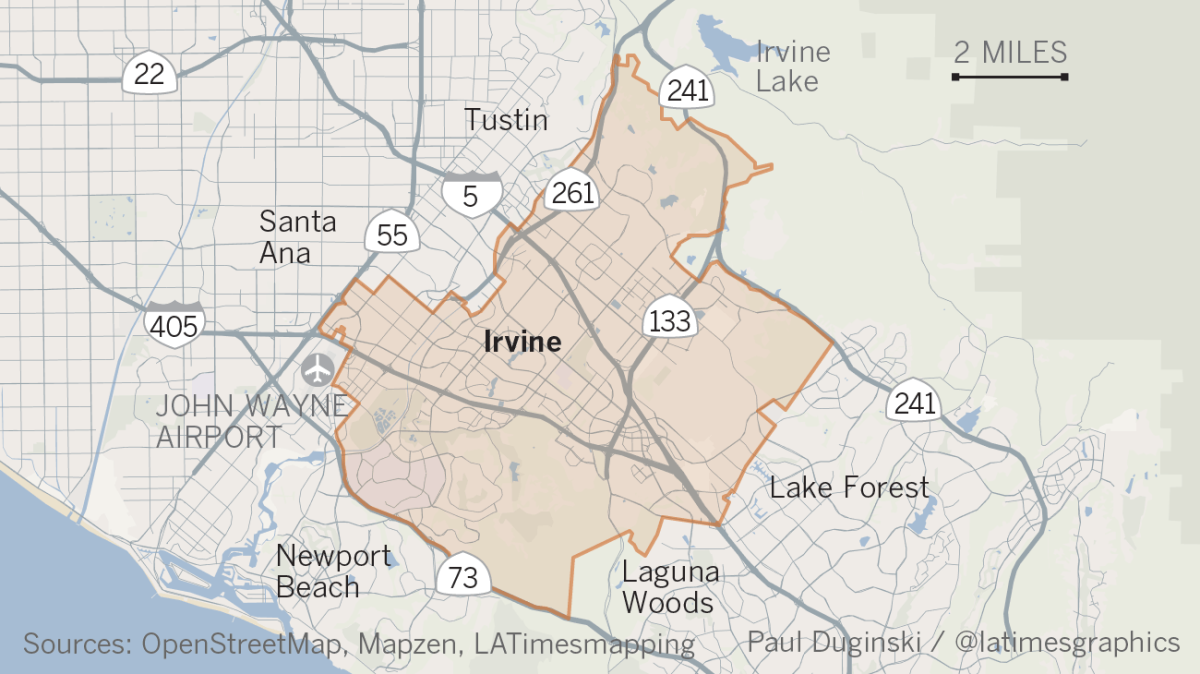
But even in this haven that residents call “a mini-United Nations,” diversity sometimes brings strain.
For recent immigrants, it can be hard to fit into the Irvine ideal. Some feel self-conscious about their heavy accents, while others talk about encounters with the occasional longtime resident who resents the influx of Asians and other immigrants.
For white residents of Irvine, the boom has brought much to like — rising home values, stellar test scores and an explosion of ethnic restaurants, cultural celebrations and retail spaces that have brought international sophistication to a place once known as cookie-cutter suburbia.
Some also think it might all be too much, too fast.
Loving Irvine, but feeling like an outsider
May Hartman moved to Irvine from Shanghai in 2014 to study accounting at Irvine Valley College. She’s part of a wave of immigration by Asians to the city.
There is much she loves about its neighborhoods, and she recently married and plans to settle down here.
“I say ‘wow,’ no pollution, no trash. I saw so many foreign faces, it caused me much surprise,” she said about her first days in Irvine.
She was also struck by the single-mindedness of the culture. “Everyone asked me when I will buy some house.”
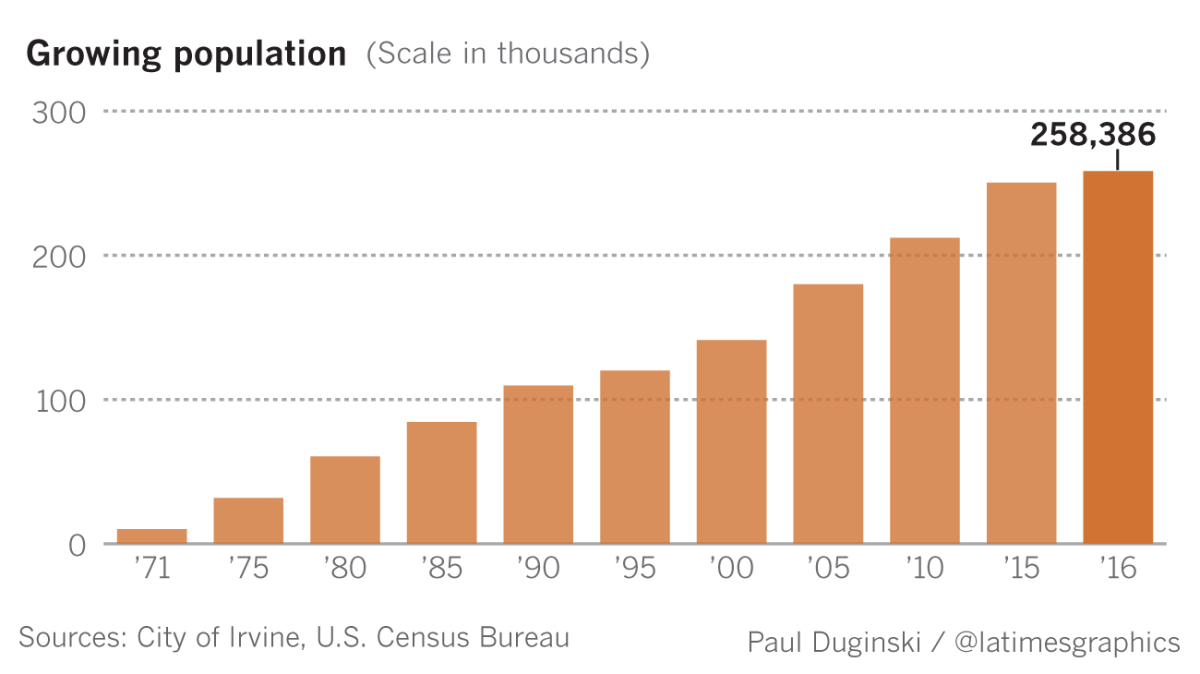
Over time, however, she said she became self-conscious about her heavy Chinese accent and believes it affects the way some people treat her.
This has inspired Hartman, 30, to try to improve her English.
“Chinese with perfect English, they get better treated,” she said. “They get quicker service. Americans are friendlier to them.”
Lily Lee said she experienced similar feelings since moving to Irvine two years ago. At 63, with grown children, she and her husband bought their condo as an investment and split their time between Hong Kong and Orange County.
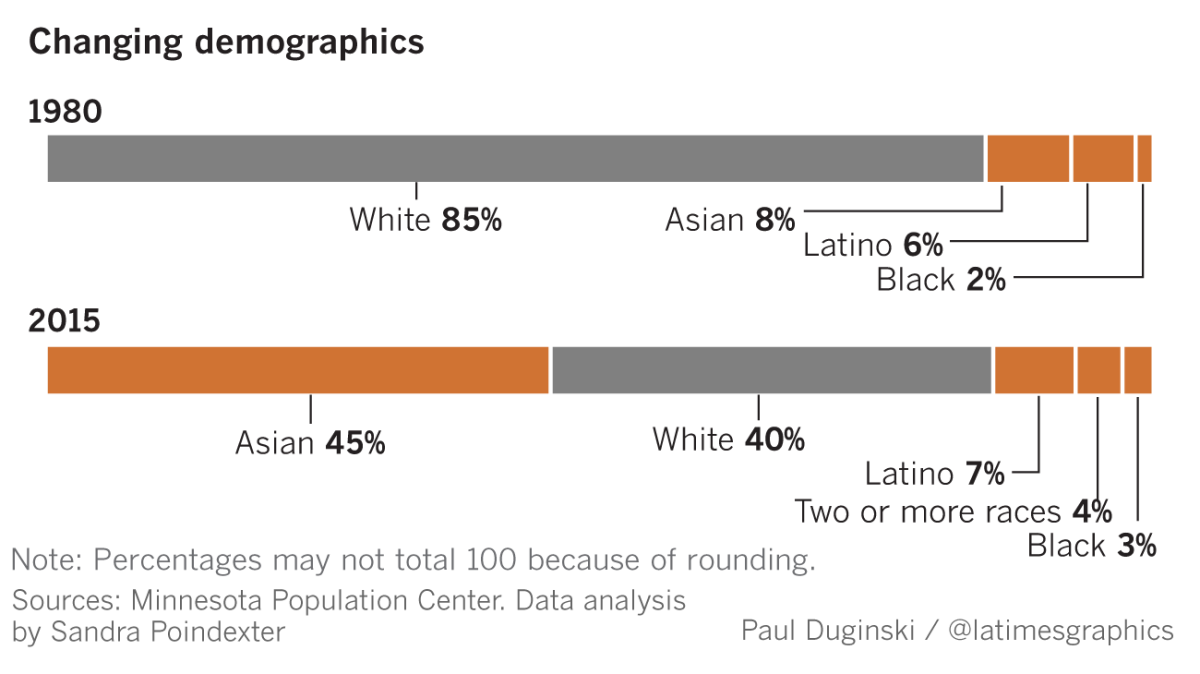
Like Hartman, Lee said she generally finds “shelter” in Irvine. But she sometimes also feels like an outsider. She describes her language skills as “classroom English” and said she knows it bothers some people.
“I do not know how I can talk the same speed like a local. Many times, I ask people to repeat. And they tell me back, ‘When do you take ESL?’ ‘Your command of this language so poor,’” she said.
Lee said some longtime residents she’s talked to are open about their concerns about how “foreign money” is causing real estate values to skyrocket. While some residents love the equity they are building as housing prices rise, others worry it’s making Irvine out of reach for many.
“They realize we are bringing investment here. So they don’t focus on politics, you see. The focus is on language,” added her husband, Bill Lee, 65. “If you are more familiar with English, you do fine here.”
'Who wouldn't want to be in such a city?'
Steven Choi is perplexed by stories of residents struggling to adjust to Irvine. The first Asian-American elected to a four-year term on the City Council, he is now a Republican state assemblyman representing the 68th District, which includes Irvine.
“This environment so comfortable. I don’t understand those views” of people not feeling accepted, he said. “Any time you move to a new place — in this country or in your home country — people will look at you with a different eye, until they get to know you.”
Choi settled in the city in 1993 and is the founder of its Korean Cultural Festival, held each May and attracting as many as 10,000 participants. He marvels at how the Irvine Unified School District continues to flourish — with 75 languages now represented, he said.
“It’s human nature to feel strange when you first come to a strange place; but here, we work on developing relationships so we can live in harmony,” he said. “You can consider that we are chosen one of the happiest places to live in America. Who wouldn’t want to be in such a city?”
Rapid growth, and diversity
Irvine is one of the fast growing cities in California, as developers continuing to build at a rapid clip to keep up with soaring demand. At the same time, the city is becoming less white and more affluent.
Irvine has a population of 258,386, according to the U.S. Census, with Asians making up 45.7%, while whites and Latinos make up 38.2% and 7%, respectively. Among its residents, 65% are college graduates.
Moreover, Irvine boasts a median home value of $740,000 and FBI statistics show it is ranked the safest big city in America in a survey of cities of comparable size, according to a community profile on the Irvine website.
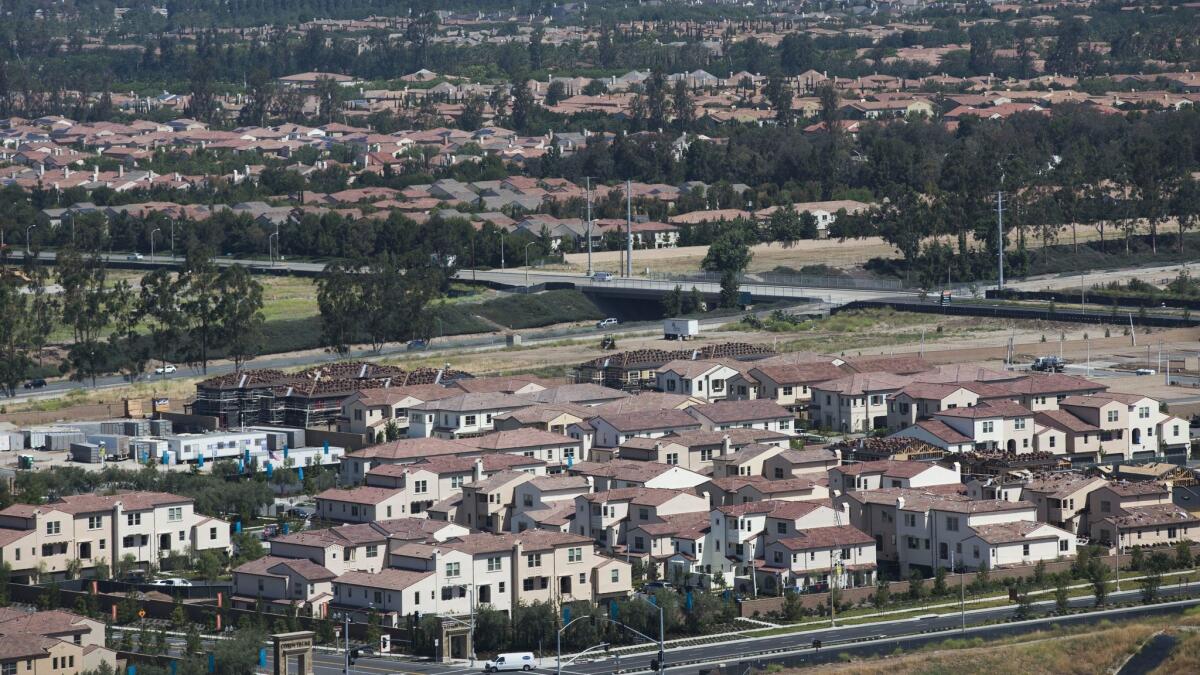
Many white residents in Irvine say that they welcome the cultural influx. Two decades ago, critics derided the city for its cookie-cutter tracts, identical homes that folks could not tell apart and the plain culture of suburbia.
“It is a seductive melody of vanilla-hued townhouses and high-tech jobs, eucalyptus-shaded greenbelts and inviting community pools. Irvine beckons with superlative schools, convenient shopping complexes and booming business parks. Crime provokes few worries. The telephone and power lines are tucked neatly underground,” The Times wrote of Irvine in 1991.
On Friday and Saturday nights, hundreds of young Asian tourists and Asian Americans pack the Diamond Jamboree plaza a few miles from UC Irvine, billed as Orange County’s international dining destination. Some hipsters scroll through their flashy gadgets while waiting in a 45-minute line for the addictive herbal jelly and taro balls at Meet Fresh, a Taiwanese dessert chain. Others check out the fashionable young women putting their names down for a table at Urban Seoul, serving kimchi fried rice and gogi tacos.
The vibe is loose, with meet-ups for dates or business deals. Women sport brand-name heels and luxury purses. Guys gussy up in surf gear or all-black ensembles. Here, too, a sprinkling of languages fills the balmy air.
“My goodness, the diversity is the reason I live here,” said hairstylist Heidi Smithers, 40, as she pushed a stroller carrying her son, Charlie. “How can you not be fascinated by where people come from?”
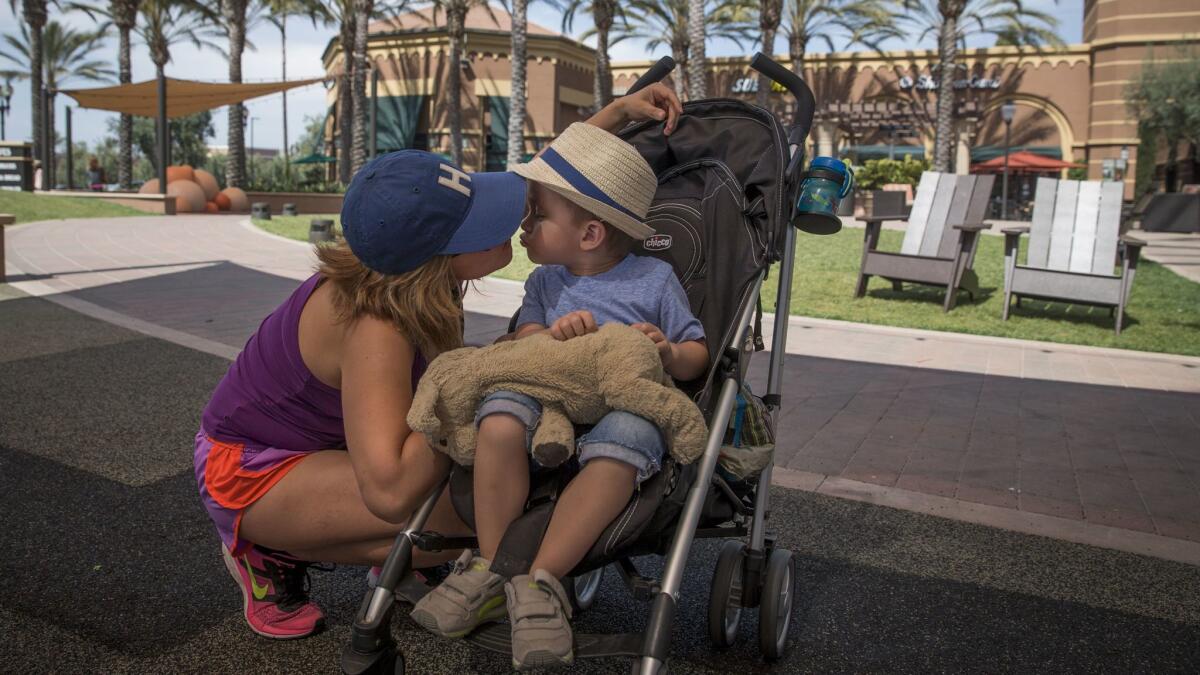
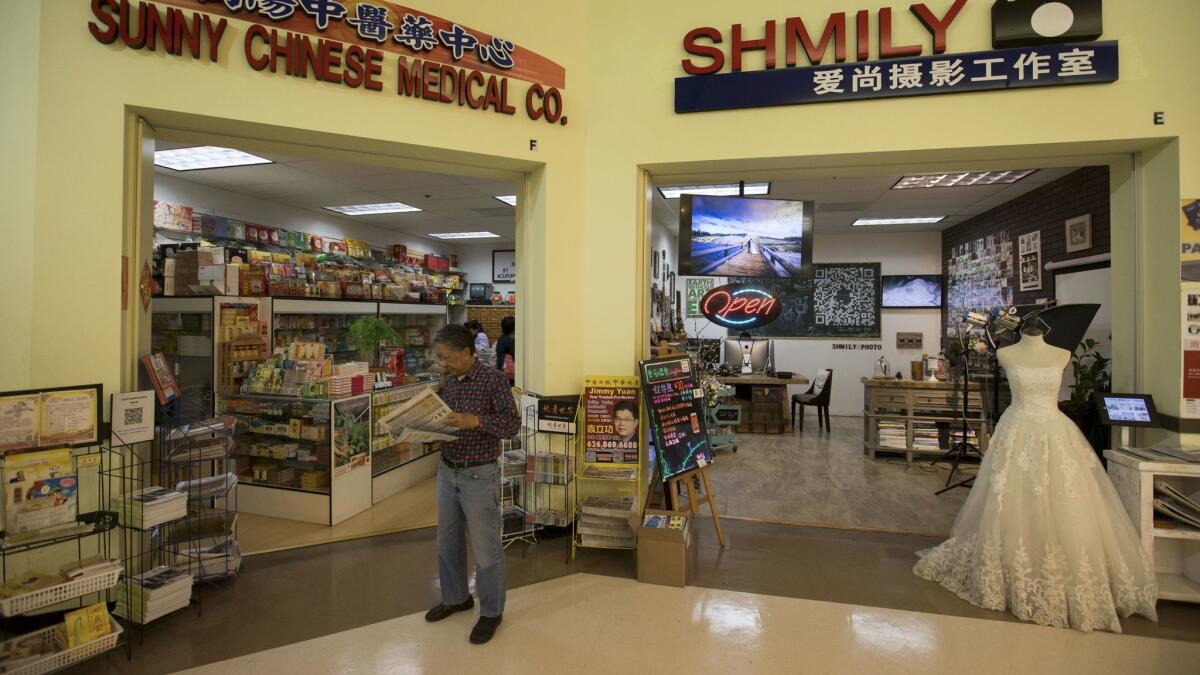
Back at the food court at Woodbury Town Center, Holly Bradley, a kindergarten teacher who described her hometown as “perfect for an ethnic potluck,” soaked up the beauty of the dialects around her. In the parking lot across from her, two sisters wearing hijabs stowed their Japanese-inspired groceries in their car, heading for a bite at Panera.
“For as long as I remember, it’s always been culturally diverse and now it's even more so,” says Bradley, 30. “Whatever else is happening in the outside world, we feel protected here.”
First, you must fit in
Christina An, a Canadian of Korean descent, said that once she moved to Irvine to raise kids about 10 years ago, she didn’t want to venture outside the city “because everything we need is already here — all the amenities. Everything is under five or 10 miles from us.”
But staying within the city’s borders could have its downside. An, 41, a sales director, recalled being initially startled by the changing demographics.
“This is a wonderful, family-friendly place, but you can be ostracized if you don’t easily adjust,” said the mother of two boys. “The people who live here are here to symbolize the American dream kind of lifestyle. You kind of look the part, act the part.”
Fred Myers, a 30-year resident, stressed that he does not feel “any bias” against Asians.
“On the one hand, as a property owner, I’m not adverse to it,” he says about the overwhelming number of people from Asia and Asian Americans settling in Irvine. “They’re paying top dollar, and it’s raising my housing value.
“On the other hand, we’re becoming overpopulated,” he said. “You see building everywhere. We’re allowing all those developers to come in and once they’re finished — they have to sell it or rent it — and who’s buying? It happens to be the Asians because they’re drawn to what makes Irvine so special, the outstanding education system.”
Myers, 72, who owned an auto parts distribution business before retiring, raised four children in the Turtle Rock neighborhood and now nine of his 12 grandchildren also live in the city.
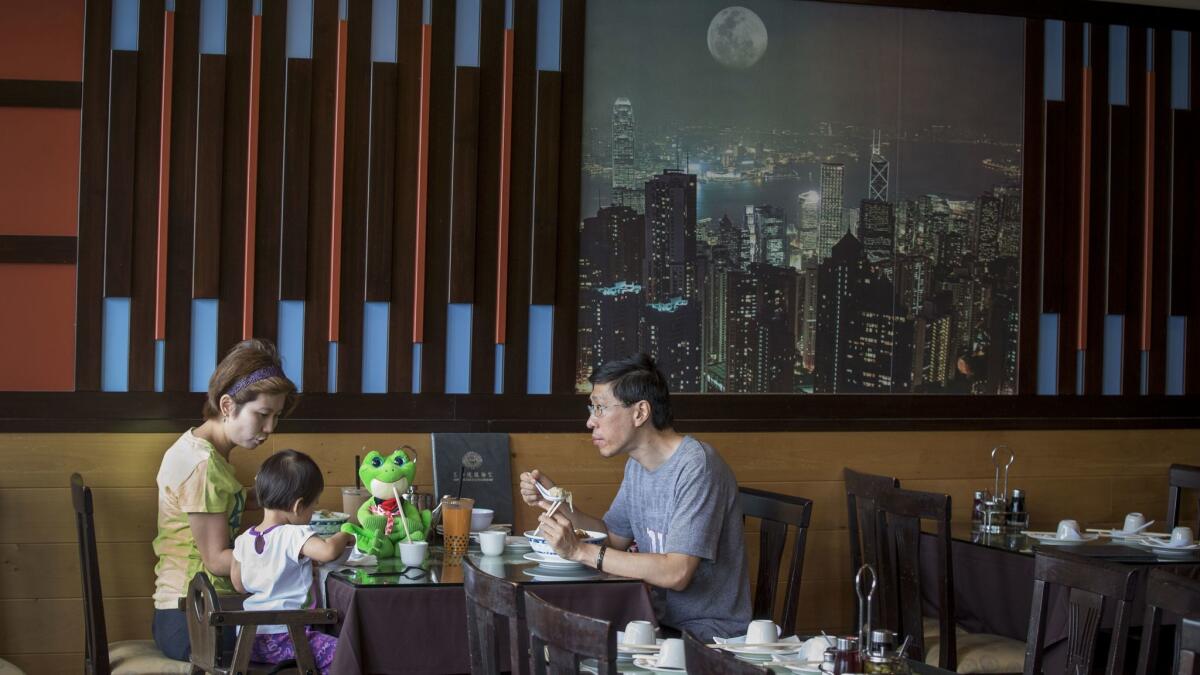
“The reality is the infrastructure can’t cope with all the new people coming in,” said Myers, while shopping at the Wholesome Choice market, a store known for its huge selection of ethnic food, including specialties from South Africa that reminds him of his childhood. “When I arrived here, Irvine was a village. Then it became a town, then a city. Now, I think it’s a metropolis.”
Sue Howell, who moved in with her cousin in Irvine more than a decade ago, reminisced about the lifestyle “of years before. There’s no bustle. There was more calm. We felt safe like in our yard. Nowadays, you see indications of Asia everywhere.”
As examples, she listed seeing store signs in Chinese or Korean — and foreign characters on restaurant menus. She acknowledges that it bothers her.
The clerical worker, 47, stood in the parking lot of Ace Hardware Store, describing it as “a bit much. I don’t want people to think it’s prejudice. That’s not me, that’s not many of us. There should just be a balance of all cultures co-existing, not one over the other.”
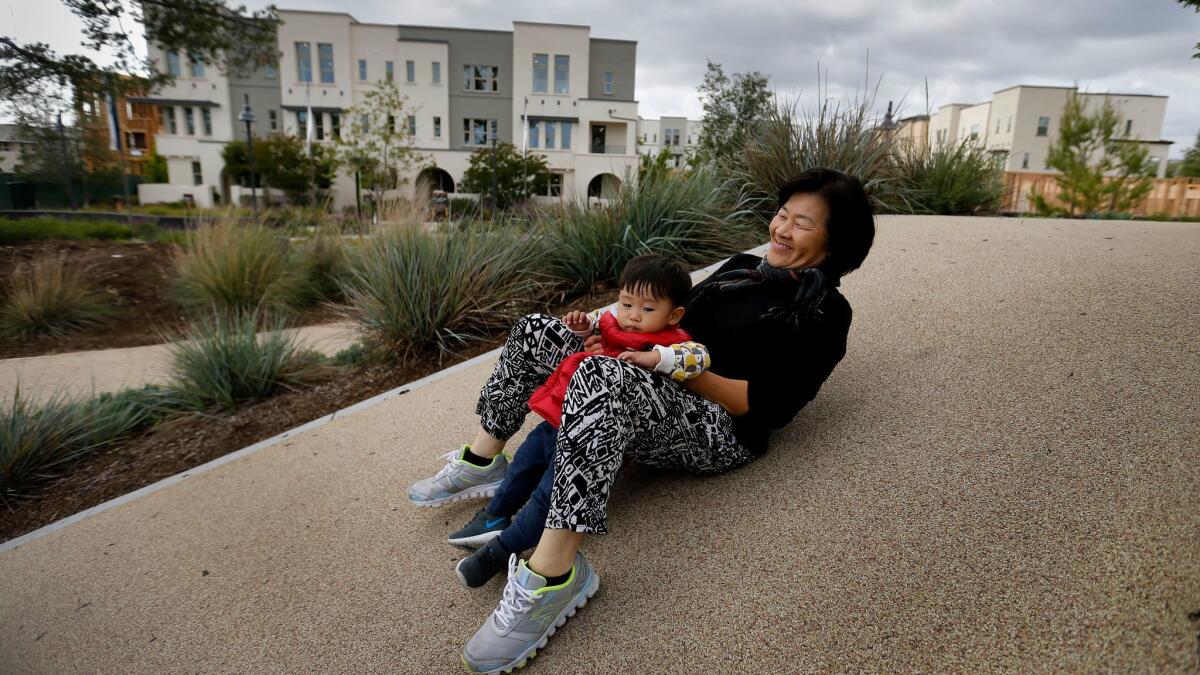
Twitter: @newsterrier
ALSO
Deadly holiday weekend on roaring Kern River: 3 dead, 24 rescued
How L.A. County is trying to sign more people up for food stamps — and why it's not easy
Sign up for Essential California
The most important California stories and recommendations in your inbox every morning.
You may occasionally receive promotional content from the Los Angeles Times.








